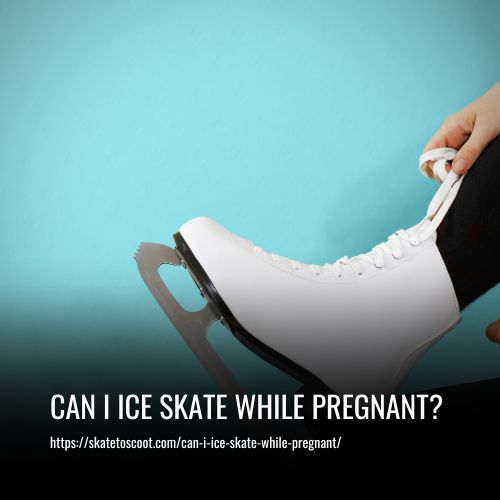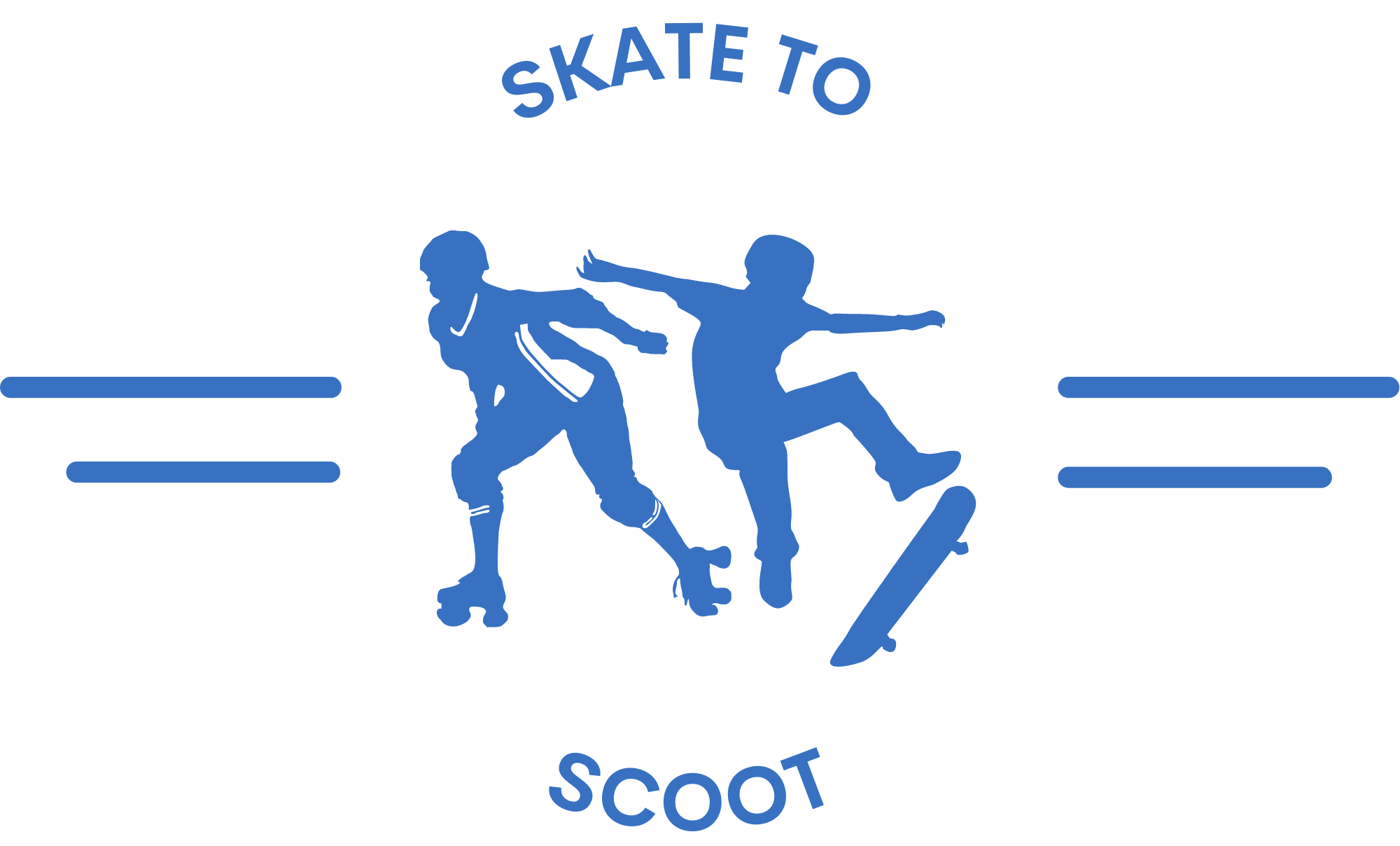Can I Ice Skate While Pregnant? Risks & Safety Guidelines
As an Amazon Associate we earn from qualifying purchases.
Ice skating while pregnant isn’t a great idea, especially when expecting. The body’s balance is unpredictable while pregnant and the confidence level may be low, increasing the risk of miscarriage or injury.
Furthermore, most ice skating rinks are naturally quite cold, and no expectant mother would enjoy being in such an environment. I will explain why pregnant women should avoid ice skating!

Is It Safe to Go Ice Skating While Pregnant?
It is not safe to go ice skating while pregnant. According to experts, any activity that may cause you to fall or have an impact on the abdomen can be dangerous for both the mother and baby. Ice skating, in-line skating, horseback riding, gymnastics, downhill skiing, soccer, football, and similar sports are some of these activities which are better avoided while pregnant.
A hard fall while doing any of these activities can lead to contractions or even a placental abruption – which can potentially be life-threatening. If you want to go out during the winter season, consider cross-country skiing and snowshoeing instead – as there is less risk of falling here!
Why You Should Skip Ice Skating During Pregnancy
As a pregnant mother, it’s important to be extra careful and cautious when it comes to physical activity. Ice skating can be an exciting way to enjoy time outdoors and have a little fun, but unfortunately, this isn’t the best thing for pregnant moms.
According to Megan Gray, M.D., OB-GYN at Orlando Health Physician Associates, ice skating carries a very high risk of falling and any kind of impact on your abdomen has the potential to cause trauma to your placenta. This can lead to emergency complications for both you and your baby.
Additionally, Sharlay Butler, M.D., MPH, OB-GYN at Brigham and Women’s Hospital advises that pregnant people should avoid physical activities with a risk of falling or impact of one’s bodies against hard surfaces. No matter how tempting it may be, take caution while pregnant – staying off the ice is the safest option!
Women Can’t Safely Ice Skate During Any Stage of Pregnancy
For the safety of pregnant women, ice skating should be avoided at all stages of pregnancy. It’s important that if you are a passionate ice skater, you put your skates aside until your child is born.
Even though ice skating can seem safe even for highly-skilled individuals, practitioners of this sport should be extra careful and refrain from doing it during any part of their pregnancy to ensure the safety of both mother and baby.
The unpredictability of ice skating carries a big risk for pregnant women and one wrong move could have dire consequences. That’s why professional or recreational skaters should hang up their skates when they find out that they are expecting and look for another form of exercise instead.
Ice skating is not recommended at all for pregnant women because it puts them and the unborn child in danger due to the possibility of injuries and bruises which could result from falls or accidents during an activity like this one.
For this reason, all pregnant women who enjoy ice skating must take a break while they’re expecting and stick to safer activities as long as they’re carrying their baby.
Why Ice Skating During Pregnancy is Dangerous?
Ice skating during pregnancy is incredibly dangerous. The hard and slippery surface of the ice can pose a real challenge to your balance while you try to stay upright, especially with a growing baby bump.
There’s also a high risk of trauma since falls can cause abdominal injuries, premature separation of the placenta, or even preterm labor. It’s even worse than snow skiing as you don’t have the cushion of the soft powdery snow beneath you!
Plus, when you go for an ice-skating session, chances are that you will be traveling to places at higher altitudes. With reduced oxygen levels beyond 6,000 feet, the unborn child could suffer from fetal stress which could even lead to birth defects or poor fetal growth. Clearly, it’s better not to take any unnecessary risks!
The Risks And Challenges of Ice Skating While Pregnant
Here are some risks and challenges of ice skating while pregnant.
1. Pregnancy Affects Body Balance
Pregnant women may find themselves more susceptible to falls and slips due to physical changes in the body caused by pregnancy. As their baby develops, a woman’s Centre of gravity can shift making it harder for them to maintain balance. This can result in even the most experienced ice skaters feeling unstable while on the ice.
To ensure the safety of both mother and unborn baby it is important that pregnant mothers pay extra attention to their body balance and take extra care not to overexert themselves during activities like ice skating.
If any irregularities occur immediately after a fall, such as amniotic fluid leaking or slow movement of the baby, then it is advised that you contact your doctor for further advice on what action to take.
Ultimately, the safety of both mother and baby is paramount so it is essential that all activities are taken during pregnancy be monitored carefully in order for both to stay safe and healthy.
2. Pregnancy Lowers Confidence
Pregnancy often has the effect of lowering one’s confidence. For skaters who have been on the ice for years and those who value their ice skating training, having a decrease in confidence can be worrying as it can lead to potential accidents.
This lower confidence is something many pregnant women struggle with due to concerns about their baby’s development or any changes that occur in their bodies.
In addition, decreased self-esteem often leads to a lack of focus when participating in physical activities such as ice skating which can result in dangerous situations.
3. Falling When Ice Skating Can Cause a Miscarriage
Falling on hard ice while ice skating can be extremely dangerous for pregnant women, as it increases the risk of miscarriage. A miscarriage is an abrupt end to a pregnancy before 20 weeks and can be caused by abnormal development in the baby or trauma due to a fall.
When a woman falls unexpectedly while ice skating, she could hit her stomach in such a way that it causes trauma to her placenta, leading to potentially serious complications like vaginal bleeding, uterine pain, contractions before the delivery date, leaking amniotic fluid, or delayed baby movement.
If any of these symptoms occur, medical attention should be sought immediately as they could signal a high risk situation.
4. Ice Skating Rinks are Cold and May be Uncomfortable for You
Ice skating rinks are known for their low temperatures, which can be uncomfortable and even dangerous to pregnant women.
The cold environment of the rink can cause various complications such as pneumonia and make you and your baby susceptible to illnesses.
Why Accidental Falling Can Occur
As pregnancy progresses, the center of balance shifts forward, resulting in more weight toward the front of the body. This makes it harder to stay upright on an uneven or slippery surface and increases the risk of accidental falling – in fact, nearly 30 percent of expecting mothers fall during their pregnancy.
When momentum is gained while ice skating, any slips are unfortunately likely to end with a landing on their baby bumps – an outcome that no pregnant woman ever wants to experience.
It’s therefore extremely important for pregnant women to be aware of the increased risk of slipping and falling whilst out ice skating.
Falling During Early Pregnancy When Ice Skating
Falling while ice skating in the early stages of pregnancy can be a scary experience. Fortunately, the female body is made to tolerate minor trauma while carrying a fetus, so a fall during the first trimester will not lead to miscarriage.
As the pregnancy progresses, the uterus sits lower in the pelvis, protected by the pelvic bones of the mother. Thanks to these bones, it’s highly unlikely that a fall will hurt the baby.
Falling During Later Pregnancy When Ice Skating
Falling during later pregnancy when ice skating can be a real risk. During the second and third trimesters, there is protection from the amniotic fluid and other supporting structures.
However, if one were to experience a major collision while ice skating in the later stages of pregnancy, there is an increased risk of fetal or placenta injury due to the size and force of impact on the baby.
This risk increases to 40-50 percent if a major collision occurs. To ensure maximum safety while pregnant, it’s best to avoid any activity where falling is likely and more so when Ice Skating.
Tips For Ice Skating While Pregnant
Ice skating while pregnant can be dangerous if you don’t take the right precautions. To stay safe while skating while pregnant, make sure to wear properly fitting footwear that will help you stay in control and provide cushioning when you fall.
It’s also important to equip yourself with protective gear such as a helmet and knee pads that will protect you from injury if you should slip and fall on the ice.
Additionally, try avoiding leaning forward too much and refraining from jumping and spinning which can increase your risk of falling on hard ice.
Things To Consider
When it comes to pregnant women and ice skating, there are some important things to consider. Before signing off on this activity, your doctor is likely to ask if you have any prior experience with ice skating since even experienced skaters should find safe alternatives during pregnancy.
Additionally, they will ask which trimester you are in as a moderate form of ice skating may be acceptable in the first trimester and early stages of the second trimester.
Lastly, it’s important to note that competitive skating, figure skating, or crowded rinks are not recommended while expecting- particularly because they can put you and the baby at risk. When it comes to exercising while pregnant, safety should always come first!
FAQs
While pregnant, there is risk involved with skating, such as slipping and falling, becoming stuck in snow banks, and skate injuries. It’s wise to discuss any activities you plan to do with your healthcare provider before participating in them.
If you’re pregnant, skating can be dangerous as it can lead to falls, ice skate accidents, and potential harm to both you and your baby.
When skating during pregnancy, it’s important to wear a helmet and protective gear, as well as take regular rests in order to avoid exhausting yourself.
Skate Perfect warns that a fall on the ice can be dangerous for pregnant women, potentially causing issues such as miscarriage, placental abruption, head injury to the baby, fractures, and more.
No special skates are required for a baby bump, although some ice skaters prefer wider blades and softer ice for better glide.
When pregnant, skating requires extra caution. Before participating in any physical activity, talking to your healthcare provider is essential for the safety of both you and the baby.
Ice skating while pregnant can be dangerous if you don’t take the right precautions. To stay safe while skating while pregnant, make sure to wear properly fitting footwear that will help you stay in control and provide cushioning when you fall.
Conclusion
In conclusion, it is possible to enjoy a leisurely ice skating session while pregnant. However, always speak with your doctor before trying any kind of physical activity because they know best when it comes to the health and safety of both you and your baby.
Additionally, use common sense and listen to your body. Stop if you feel any pain or dizziness, pump up the breaks on more challenging moves, and never push yourself too hard.
